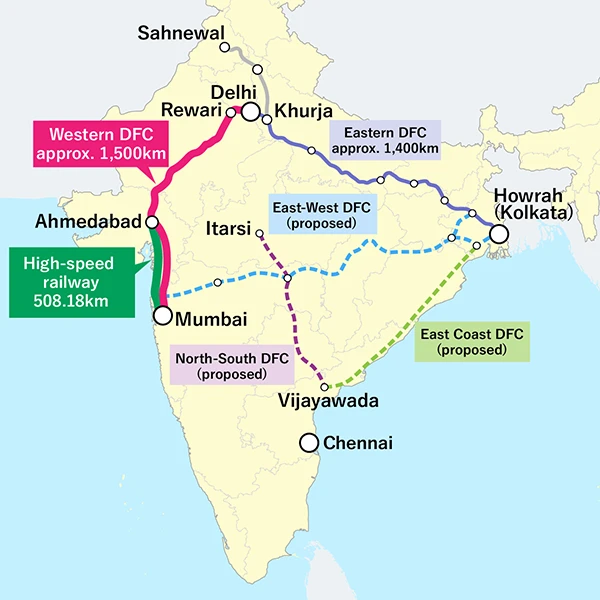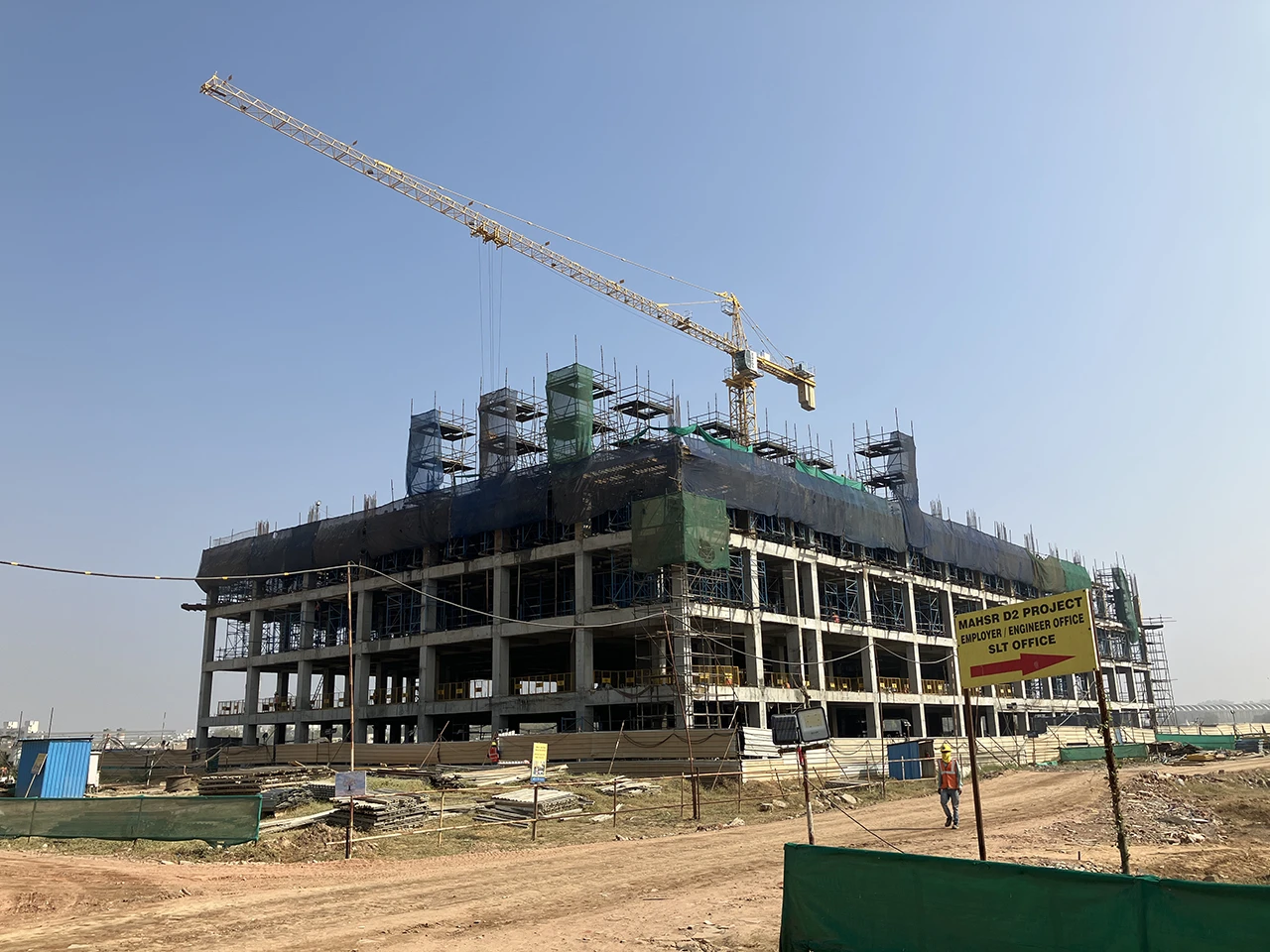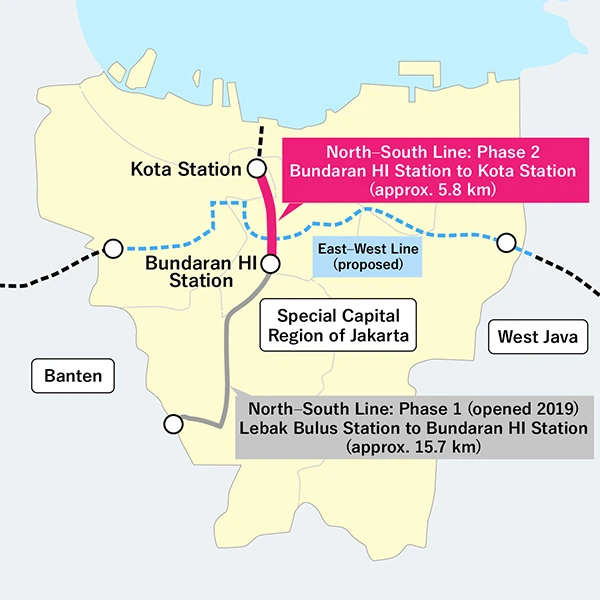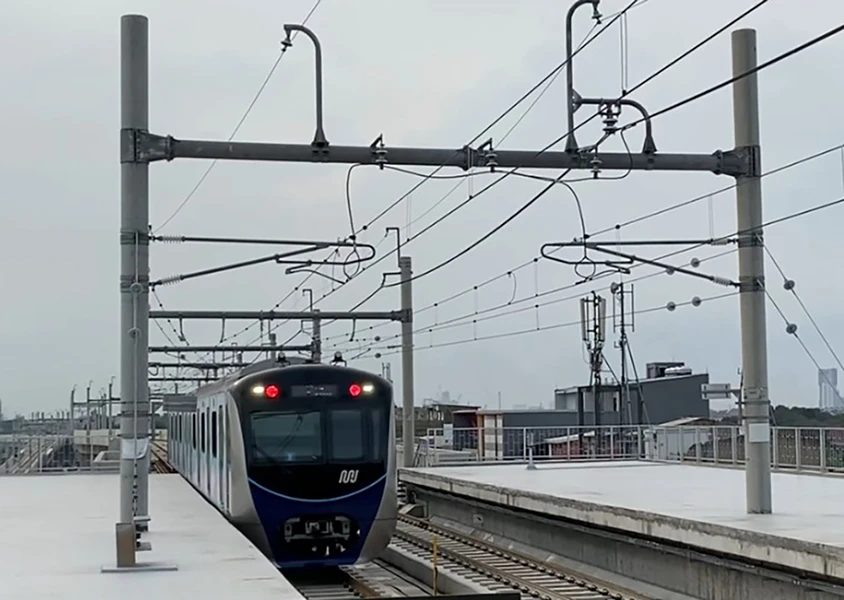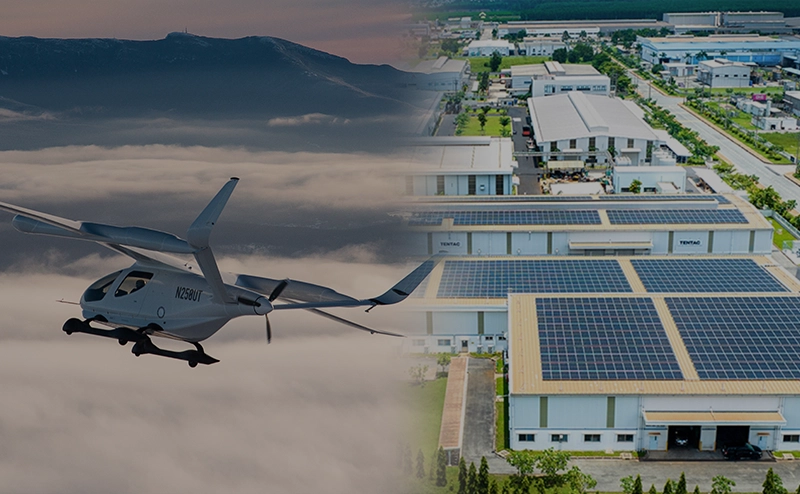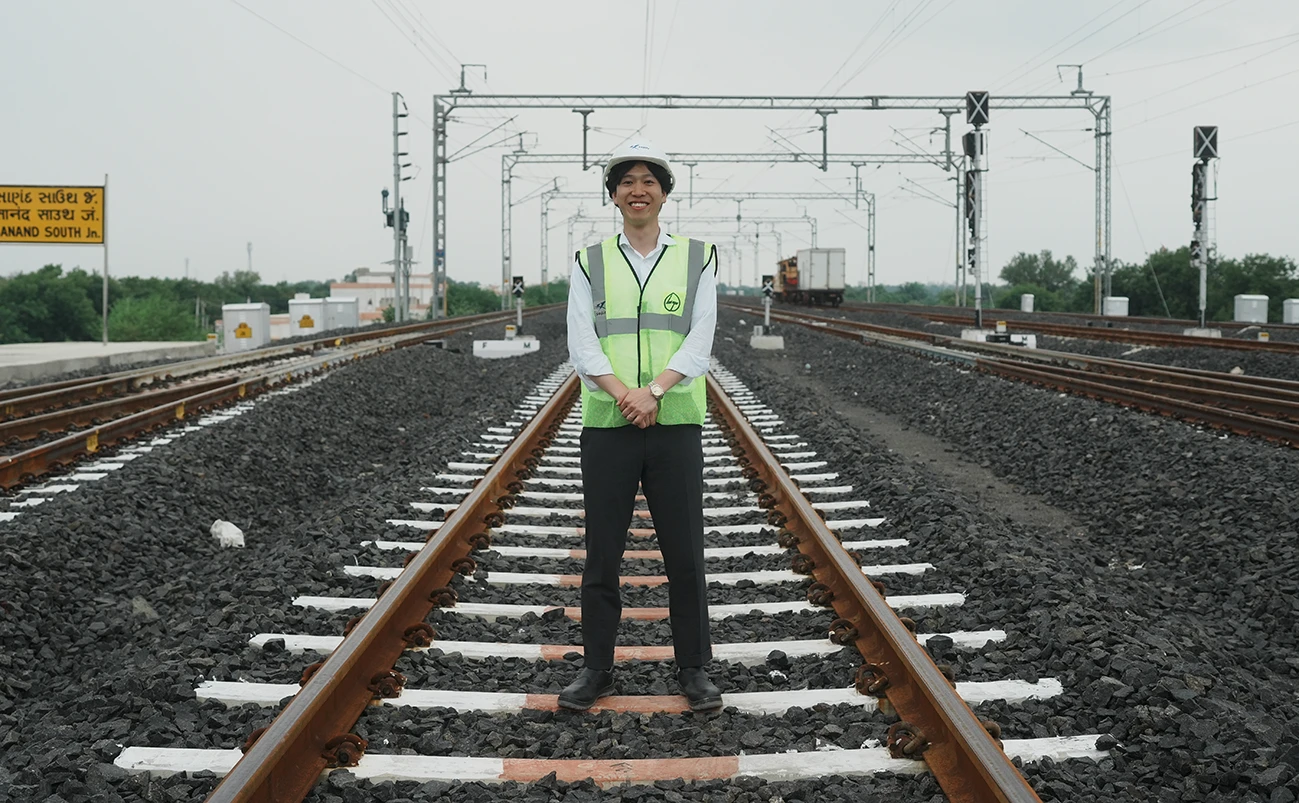Sojitz’s Rail Construction Business in India and Indonesia:
From Railcar Export to Railway EPC
Sep. 8, 2025
Sep. 8, 2025
In nations with emerging economies such as India and Indonesia, rapid economic growth has amplified the need to develop and improve existing transport infrastructure, in terms of capacity, speed, and safety. Sojitz has a history of involvement in railcar export dating back to the 1950s, and the company now handles the trade of railcar-related systems and components while leveraging its comprehensive capabilities as a general trading company in the rail engineering, procurement, and construction (EPC) business. Currently, Sojitz is involved in three major rail projects: 1) a dedicated freight corridor between Delhi and Mumbai, India, 2) a high-speed rail line between Mumbai and Ahmedabad, India, and 3) a mass rapid transit project in Jakarta, Indonesia (Phase 2). This feature provides an in-depth look at Sojitz’s EPC business and the key role the company is playing in these large-scale national infrastructure projects.
- Sojitz leverages its track record in overseas railcar export and its strengths as a general trading company in the rail EPC business in Asia
- Sojitz is involved in three major projects currently in progress: Dedicated freight corridor (India), high-speed railway (India), and mass rapid transit project (Jakarta, Indonesia)
- Sojitz is taking part in these projects through its partnership with Larsen & Toubro Limited, India’s largest general contractor
Sojitz has a long history in the rail business. In 1956, Sojitz’s predecessor company Nissho Co., Ltd. concluded a contract for the export of railcars to Argentina, which was the first deal its kind in the post-war era. After Japan’s Tokaido Shinkansen began service in 1964 (connecting Tokyo and Osaka), Japanese rail technology gained global recognition. Nissho subsequently completed many rail export projects to countries in Africa and other emerging nations. Nissho later merged with Iwai Sangyo Co. Ltd., and as Nissho Iwai Corporation, the company went on to achieve an unprecedented breakthrough into the advanced U.S. rail market with the supply of streetcars to the city of Philadelphia and railcars to the New York City subway in the late 1970s and early 1980s.
As the industry changed over the years, railcar makers and electrical equipment manufacturers began exporting their railcars, transformers, and other machinery directly to overseas clients. In light of this shift, Sojitz leveraged its existing expertise in the railcar export business to enter the rail EPC business, focusing on the Asia region, where economies are rapidly expanding and populations are growing, particularly among the younger demographic. Beyond its existing export of railcar-related systems and components, Sojitz’s comprehensive EPC projects range from construction on dedicated freight corridors and train depots to work on high-speed railways and urban rail systems. The company is currently involved in three major rail construction projects: 1) a dedicated freight corridor between Delhi and Mumbai, India, 2) a high-speed rail line between Mumbai and Ahmedabad, India, and 3) a mass rapid transit project in Jakarta, Indonesia (Phase 2).
India boasts an extensive rail network with a total track length of over 135,000 kilometers,*1 which is nearly five times that of Japan.*2 India’s Ministry of Railways, the government agency that oversees rail operation, is a massive organization with 1.4 million employees. With freight transport volumes increasing by over 10% each year alongside dramatic economic growth, the transport capacity of India’s rail system is reaching its limits. Freight trains have low priority among all rail services, and passenger trains using the same tracks receive priority over cargo, causing longer freight transport times.
To solve this problem, the Indian government has set out to improve the speed and capacity of freight transport through the creation of five dedicated freight corridors (DFCs). The corridors will be among the largest in the world and connect four major cities: Delhi, Mumbai, Chennai, and Kolkata. Construction is currently underway on the Western DFC, a 1,500-kilometer line connecting Delhi and Mumbai that is supported by a yen-based loan. This project involves building a dedicated freight railway that will allow for double-stack container trains to travel at speeds of up to 100 kilometers per hour across a distance comparable to the trip from Tokyo Station to southwestern Kagoshima Chuo Station on the opposite end of Japan.
*1: As of March 2024. Source: Indian Railways Year Book 2023-24 (Indian Ministry of Railways)
*2: As of 2022. Source: Railway Statistics Annual Report 2022, Japanese Ministry of Land, Infrastructure, Transport and Tourism (Japanese language)
Sojitz is also involved in the construction of India’s first high-speed railway. This yen-based ODA project will build 508 kilometers of track connecting the city of Mumbai on the western coast of the state of Maharashtra with the city of Ahmedabad in the state of Gujarat. Sojitz and partner Larsen & Toubro Limited (L&T) received an order for the comprehensive construction of a rail maintenance depot in December 2022 and another order for electrification works in January 2024. The track will be roughly the same length as the Tokaido Shinkansen from Tokyo Station to Kyoto Station. The journey from Mumbai to Ahmedabad takes about seven hours via existing express trains, but once complete, the high-speed rail is projected to shorten the trip to about two hours. The civil engineering and trackwork are already underway, and the project partners have begun excavation work for the maintenance depot. Foundation work for the electrification project has also commenced, and negotiations regarding details such as procurement and design are in progress, in preparation for full-scale construction launch.
Finally, Sojitz has also joined Phase 2 of a construction project on the Jakarta Mass Rapid Transit system in Jakarta, Indonesia. This phase involves the extension of the existing North–South subway line, adding roughly 5.8 kilometers of track to connect Bundaran HI Station to Kota Station in central Jakarta. Sojitz received the sole prime contract for track installation and delivery of an integrated railway system in April 2024. Rapid economic growth in Indonesia has intensified chronic traffic congestion and consequent air pollution, and the new subway is expected to help alleviate these issues.
Since receiving contracts for electrification works from Indian Railways in the 1950s, Sojitz has gone on to complete many rail supply projects in India. Sojitz joined the bidding for the Western DFC contract through a consortium formed with L&T, India’s largest general contractor and comprehensive engineering company. Since 2013, the consortium has acquired six contracts*3 for the Western DFC project, including the trackwork package. The total value of these contracts exceeds 350 billion yen, making the Western DFC one of the largest overseas rail projects undertaken by a single Japanese company. While the DFC project represents a major accomplishment for the company, Sojitz also received a number of challenging requests from Dedicated Freight Corridor Corporation of India Ltd. (DFCCIL), the state-owned corporation operated by the Indian Ministry of Railways. In addition, the project encountered many obstacles that impacted overall progress, such as a complex and multi-layered approval process, land acquisition delays, changes in local tax regulations and laws, and delays in construction site clean-up, which all caused significant difficulties.
Sojitz was able to successfully overcome each of these challenges by leveraging its strengths as a general trading company and its partnership with L&T, and by working in close collaboration with the Japan International Cooperation Agency (JICA), the Japanese embassy, Japanese manufacturers, and the Indian government. As a result of these efforts, more than 90% of the work has been completed, and freight operations are gradually being launched.
Sojitz is also applying the lessons learned through this experience to its work in the high-speed rail project. Sojitz began the design phase by carefully identifying all possible risk factors in order to prevent issues once construction begins and ensure that the project stays on schedule. Meanwhile, Sojitz is also drawing on these experiences in India in its work on the Jakarta mass rapid transit project, where it is the sole prime contract recipient, and relying on PT. Sojitz Indonesia’s local network to successfully execute the project.
Sojitz stays responsive to the needs of each community and nation and prioritizes EPC businesses that are both scalable and replicable. Aiming for scalability means pursuing projects that give the company access to new connections that can be leveraged for future business opportunities. Replicability refers to the potential for a business initiative to be reproduced with the same model and partners, either in the same location or in a different country.
*3: Total of 6 contracts within the Western DFC project: Western DFC construction contract, two track works packages, two electrification packages, signaling and communications package, and a comprehensive track, electrification, signaling, and communications package.
Sojitz’s strategic pursuit of scalability and replicability has enabled the company to play a key role in the six Western DFC contracts, two high-speed rail contracts, and the Jakarta mass rapid transit project. Sojitz will continue to pursue new business in Asia by both exploring other regions and building new partnerships going forward.
Sojitz is also involved in other transport initiatives outside of the Asia region, including its railcar MRO and leasing businesses in Canada and the U.S. In the future, Sojitz aims to bring its expertise gained through these businesses to the Asia market and expand its infrastructure development capabilities in the transport field.

